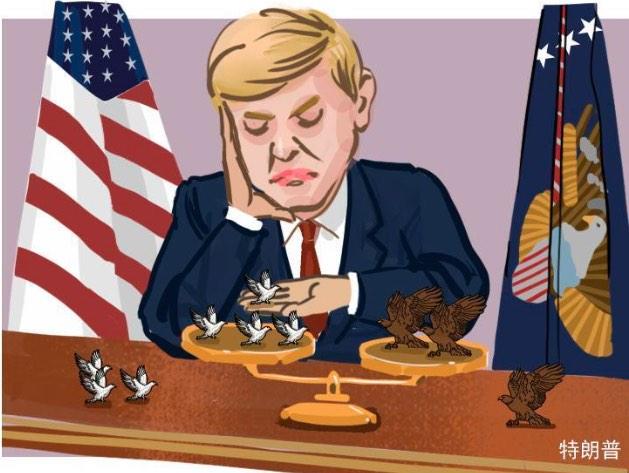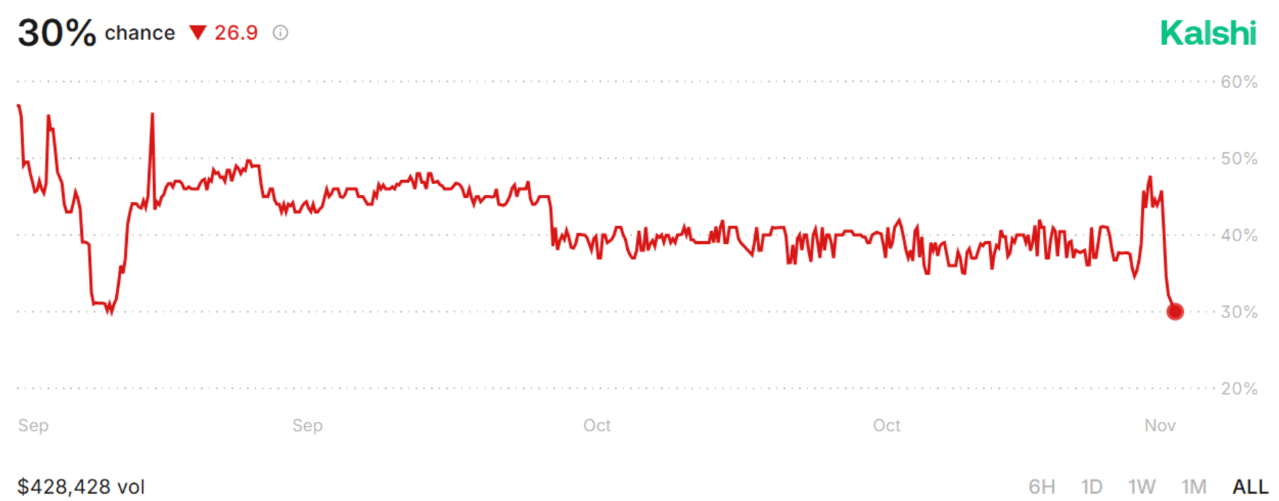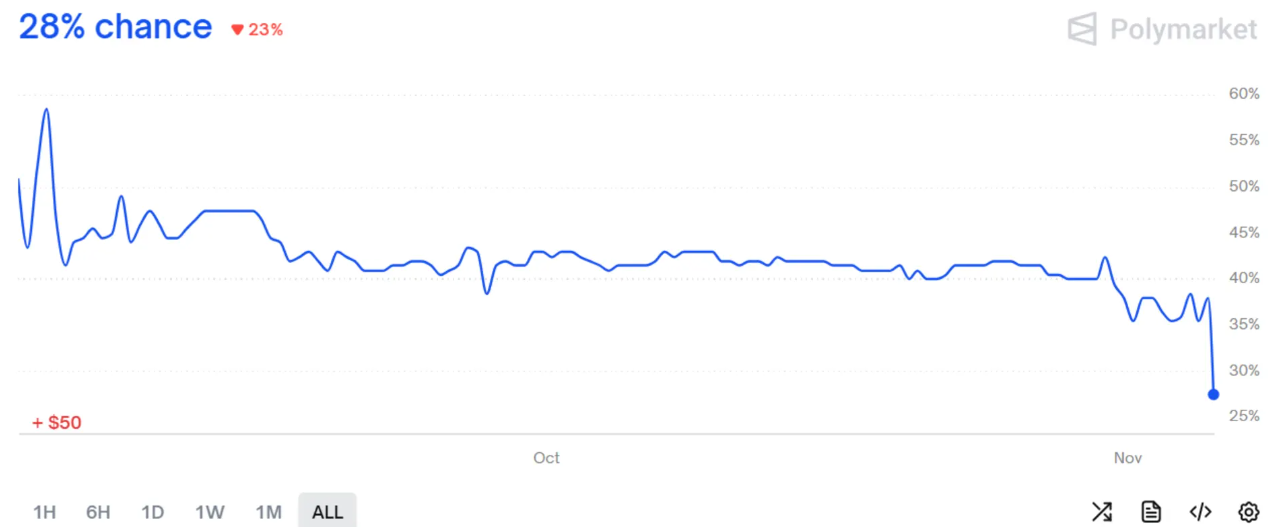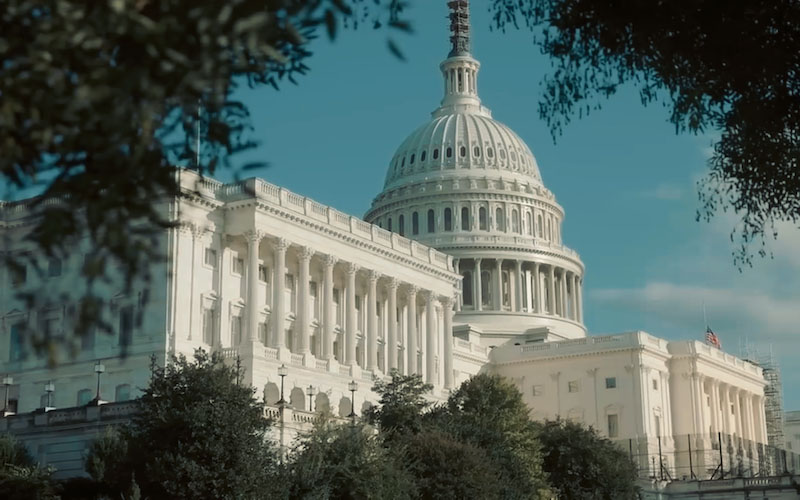Trump's tariffs suffer a major setback as a Supreme Court justice questions their legality.
2025-11-06 10:30:19
Conservative and liberal justices sharply questioned Deputy Attorney General D. John Saul about the Trump administration’s approach to imposing tariffs, which critics say violates Congress’s power to impose taxes.

A lower federal court ruled that Trump's claim of legal authorization under the International Emergency Economic Powers Act was invalid, and that he had no authority to impose so-called "reciprocal tariffs" on imports from many of the United States' trading partners, nor to impose fentanyl tariffs on products from Canada, China, and Mexico.
Saul, who defended the tariff policy, insisted that it was based on the power to regulate foreign trade, stating, "These are regulatory tariffs, not taxes designed to increase fiscal revenue."
Shortly after the oral arguments began, Saul pointed out: "These tariffs only have a side effect of generating fiscal revenue."
Liberal Justice Sonia Sotomayor countered in court, "You claim that tariffs are not taxes, but they are precisely taxes." She further emphasized, "These tariffs are extracting funds from American citizens and generating revenue."
Justice Sotomayor then pointed out that since the International Emergency Economic Powers Act of 1977 was enacted, no president other than Trump has ever imposed tariffs under that law.
Neil Gorsuch, one of the six conservative justices on the Supreme Court, pressured Saul, pointing out that Trump unilaterally imposed tariffs without congressional authorization, citing so-called trade imbalances and an international emergency regarding the influx of fentanyl into the United States. Gorsuch questioned, "What are the consequences when the president directly vetoes legislation that takes back congressional power?"
He further pointed out: "This means that once Congress relinquishes power to the president, it can never take it back. This creates a one-way mechanism that leads to the gradual and continuous expansion of executive power, while the power of elected representatives is constantly eroded."
Other conservative justices—Chief Justice John Roberts, Amy Coney Barrett, Brett Kavanaugh, and Samuel Alito—also challenged Saul.
Economic impact of tariff policies
Businesses affected by the tariffs and 12 U.S. states (most of which are Democratic-led) have challenged the tariffs.
These tariffs set a base rate of 10% for most countries, while the tariffs on goods from India and Brazil can be as high as 50%.
According to estimates by the Committee on Responsible Federal Budget, if these tariffs are maintained, they will generate an additional $3 trillion in revenue for the United States by 2035.
The agency disclosed last week that the federal government collected $151 billion in tariff revenue in the second half of fiscal year 2025, a surge of nearly 300% compared to the same period in fiscal year 2024.
The power of Congress
In his opening statement, plaintiff's lawyer Neil Cartier stated bluntly that "tariffs are taxes," echoing the core issues raised by several justices against Saul. He emphasized, "Our Founding Fathers granted the power to tax exclusively to Parliament."
Katiaar then pointed out: "We believe that the International Emergency Economic Powers Act does not permit such acts of undermining the global tariff system."
When Chief Justice Roberts asked whether tariffs involved the president's power to handle foreign affairs (as Saul argued), Katiaar responded, "We agree that tariffs do involve foreign policy." But he immediately added, "However, the Founding Fathers explicitly granted Congress the power to tax in the Constitution."
Kathiar also pointed out that although the US claims that implementing reciprocal tariffs is to address the trade deficit, Trump imposed a 39% tariff on imports from ally Switzerland—despite the US having a long-standing trade surplus with the country. He emphasized, "This is something no president in US history has ever done."
Trump has exerted immense pressure on the Supreme Court to maintain the tariff policies he relies on, which have become a key tool in his economic and foreign policy. A ruling against Trump would mark a significant shift, as the court has previously supported his broad range of actions in several decisions, including cracking down on illegal immigration, firing federal officials, and banning transgender people from serving in the military.
Trump also invoked other laws to impose additional tariffs, which are not within the scope of this case.
The Supreme Court typically takes several months to make a ruling after hearing arguments, but the government has asked the Supreme Court to act swiftly in this case.
The Supreme Court has heard more than two and a half hours of arguments but will not issue a ruling on the case on Wednesday. It is unclear when the ruling will be released, but the Trump administration has requested an expedited hearing.
Trade retaliation
The International Emergency Economic Powers Act grants the president the power to respond to “unusual and special threats” during a national emergency. Historically, this law has been used to impose sanctions on adversaries or freeze their assets.
Sauer said that Trump believes the U.S. trade deficit has brought the country to the brink of economic and national security disaster. He argues that imposing tariffs would help Trump negotiate trade agreements, while breaking them "would expose us to relentless trade retaliation from more aggressive nations and lead the United States from strength to failure with devastating economic and national security consequences."
Trump's return to the presidency sparked a global trade war, alienating trading partners, exacerbating financial market volatility, and fueling global economic uncertainty. He used tariffs to extract concessions and renegotiate trade agreements, and as leverage to punish countries that angered him on non-trade political issues.
Sauer, emphasizing the president's powers in foreign affairs, told the justices that the "major issues" principle should not apply to this case.
According to the latest data released by U.S. Customs and Border Protection, from February 4 to September 23, tariffs based on the International Emergency Economic Powers Act generated an estimated $89 billion in tax revenue.
Critics of tariff policies point out that tariffs are ultimately mostly passed on to American consumers.
Following the hearing, Victor Owen Schwartz, head of VOS Selections, one of the plaintiffs in the lawsuit against the tariff policies, issued a statement saying, "Our family has built this business from scratch over nearly 40 years. Now, arbitrary tariff policies are jeopardizing everything we have achieved."
The head of this wine and spirits importer pointed out: "It must be clear: these tariffs are not paid by foreign governments or companies. The real cost is paid by American companies like mine and American consumers—the billions of dollars in taxes collected by the government every month are ultimately passed on to us."
He emphasized: "Unlike previous tariffs that were set by Congress and could be planned for in advance by businesses, these new tariffs are arbitrary, unpredictable, and completely contrary to business principles."
Trump insisted that tariffs were crucial to protecting the American economy and its citizens. He stated that tariffs would strongly encourage companies to move their production bases back to the United States.
In a Truth Social post, Trump wrote: “If we win, we will have huge and fair financial and national security guarantees.”
"
He further stated, "If we lose the case, we will be powerless against the countries that have exploited us for years. Currently, the stock market is hitting new highs, and our country enjoys unprecedented international respect."
"This is largely due to the economic security provided by tariffs, and the agreements we have reached through tariff negotiations."
Critics of tariff policies point out that the real economic losses are not borne by foreign manufacturers, but by U.S. importers who pay tariffs, and these additional costs are ultimately mostly passed on to U.S. consumers.
U.S. Treasury Secretary Bessant said he felt very optimistic after the tariff hearings.
U.S. Treasury Secretary Bessant said Wednesday that he felt “very, very optimistic” after the Supreme Court held hearings on the legality of President Trump’s across-the-board tariffs.
Bessant told Fox Business News that he thought the plaintiffs who challenged Trump’s tariffs “almost embarrassed themselves,” and he believed the Supreme Court would overturn the lower court’s ruling that the tariffs were illegal.
In court filings in September, Bessant warned that the U.S. could face more than $7.5 trillion in tax refunds if the Supreme Court rules the tariffs illegal and delays its ruling until next summer. Bessant appeared at a hearing on Wednesday.
In a subsequent post on the X platform, Bessant praised Deputy Attorney General Saul for "providing a strong and compelling argument for the necessity of invoking the International Emergency Economic Powers Act in response to President Trump's declaration of a national emergency."
He further pointed out that the plaintiffs' lawyers, Neil Cartier and Benjamin Gutman, "exposed a fundamental misunderstanding and misinterpretation of the Trump administration's trade objectives," and sarcastically remarked: "The two lawyers actually argued that the president has the right to impose embargoes or quotas because these measures do not affect government revenue—such astonishing ignorance of economics is truly shameful to make such a statement in the Supreme Court."
When asked how the government would return the large sums of money it had already collected if the Supreme Court upheld the original ruling, Bessant said, "Things will work themselves out, but I believe we don't have to."
This case is seen as a crucial legal test for Trump, despite having received favorable Supreme Court rulings on several other policies during his second term.
Market forecasters have significantly lowered their estimates of the likelihood of Trump tariffs remaining in force following the Supreme Court ruling.
Traders sharply lowered their expectations for the Supreme Court to uphold President Trump’s aggressive tariff policies after justices on Wednesday expressed doubt about the legitimacy of the government’s tariff powers.
On the Kalshi platform, the odds for contracts related to whether the court will support Trump's tariff policies have dropped from nearly 50% before Wednesday's hearing to about 30%.

Odds for similar contracts on the Polymarket platform have fallen from over 40% earlier this week to around 30%, suggesting that traders are increasingly inclined to believe that judges may reject the policy.

The market volatility stemmed from multiple conservative justices joining their liberal colleagues in questioning Trump's broad authority to invoke the International Emergency Economic Powers Act to impose tariffs.
Prediction markets allow traders to bet on real-world events and often react quickly to perceived signals during high-profile court hearings. Wednesday's market movements suggest that traders viewed the justices' stances as a barometer of potential obstacles to the president's trade agenda.
- Risk Warning and Disclaimer
- The market involves risk, and trading may not be suitable for all investors. This article is for reference only and does not constitute personal investment advice, nor does it take into account certain users’ specific investment objectives, financial situation, or other needs. Any investment decisions made based on this information are at your own risk.





















